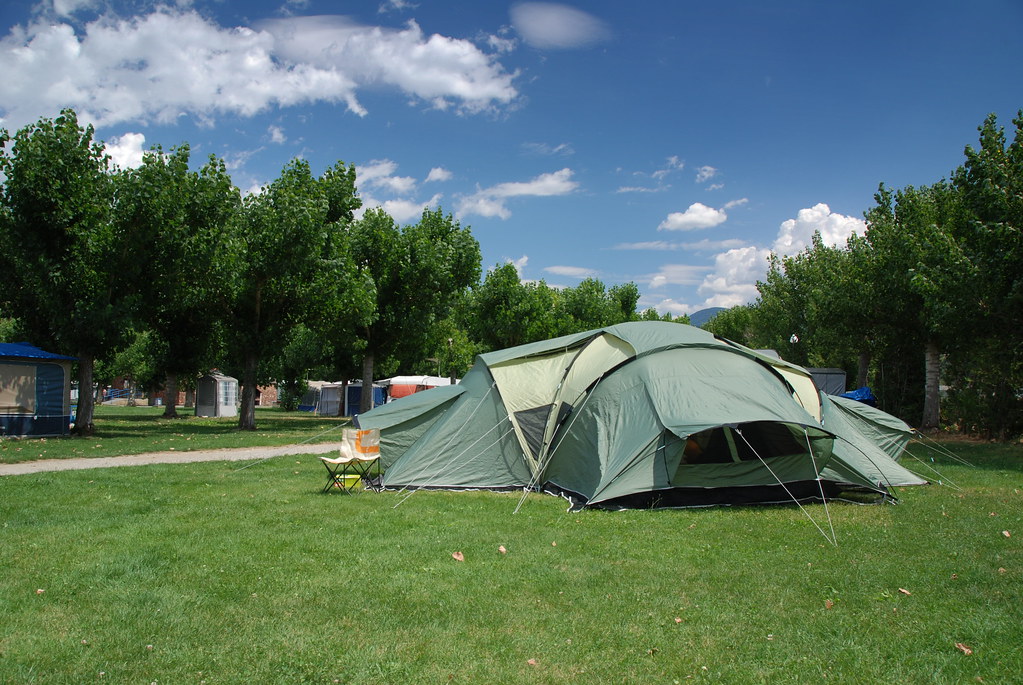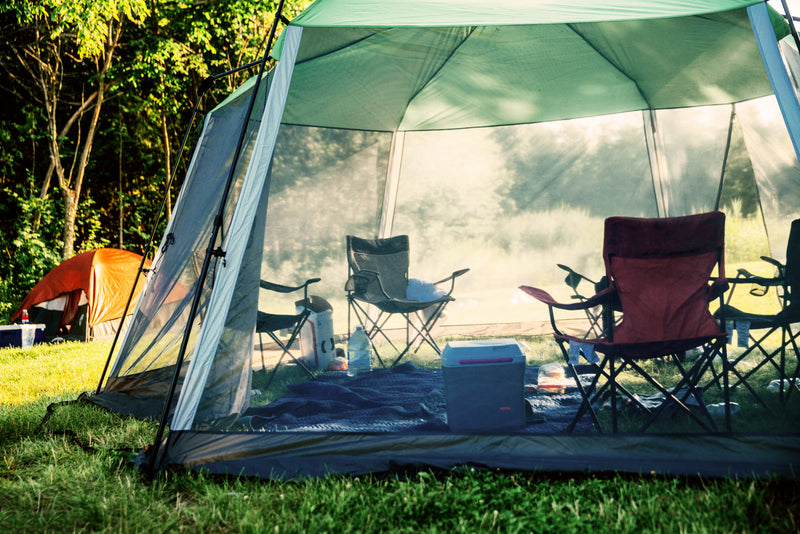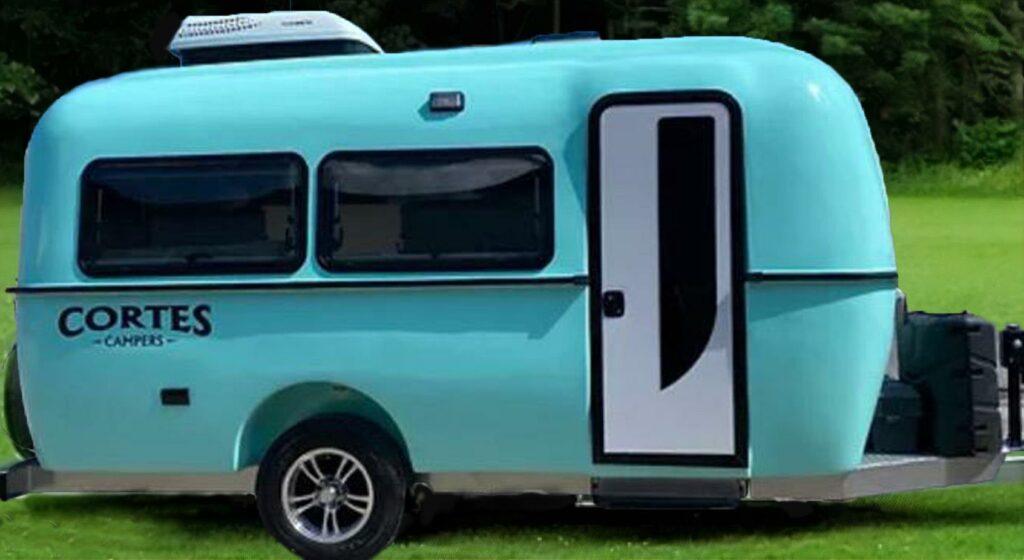Are you passionate about camping and the great outdoors? Do you want to enjoy all that nature has to offer while also preserving it for future generations? If so, then mastering eco-friendly camping is the way to go. In this blog post, we will explore some of the best green practices that will help you embrace sustainability during your camping trips. From choosing the right gear to minimizing waste and reducing your carbon footprint, we’ve got you covered. So, pack your bags and get ready to discover how you can enjoy a guilt-free camping experience without sacrificing comfort or convenience. Let’s dive in!
Why Eco-Friendly Camping is Important: A Comprehensive Guide
Eco-friendly camping practices are becoming increasingly important as we strive to protect the environment and preserve natural resources. By adopting green camping practices, we can reduce our impact on the environment and enjoy the great outdoors in a sustainable way. Eco-friendly camping involves making conscious choices about everything from gear and equipment to cooking methods and waste disposal. By reducing our carbon footprint while camping, we can help to mitigate the effects of climate change and protect fragile ecosystems. In this comprehensive guide, we will explore the importance of eco-friendly camping practices and provide practical tips for reducing your impact on the environment while enjoying all that nature has to offer.

Top 5 Eco-Friendly Camping Practices You Need to Embrace
Eco-friendly camping practices are not only good for the environment, but they can also enhance your overall camping experience. Here are the top 5 eco-friendly camping practices you need to embrace:
- *Leave No Trace*: This principle is all about minimizing your impact on the environment. Always pack out what you pack in, dispose of waste properly, and avoid damaging plants and wildlife.
- *Use Reusable Items*: Bring reusable water bottles, utensils, and containers to reduce waste. You can also use cloth napkins and towels instead of disposable ones.
- *Choose Sustainable Gear: Look for camping gear made from sustainable materials like bamboo or recycled plastic. Avoid single-use items like plastic plates* or cups.
- *Reduce Energy Use: Use solar-powered lights or lanterns instead of disposable batteries*. Opt for a camp stove instead of a fire to reduce emissions.
- *Support Local Businesses*: Buy food and supplies from local farmers’ markets or shops to reduce transportation emissions and support the local economy.
By embracing these eco-friendly camping practices, you can minimize your impact on the environment while enjoying all that nature has to offer.
How to Reduce Your Carbon Footprint While Camping: Tips and Tricks
Reducing your carbon footprint while camping is crucial to preserving the environment. One way to do this is by choosing a campsite that is closer to home, reducing the amount of fuel needed for transportation. Additionally, using reusable and biodegradable products such as utensils, plates, and cups can significantly reduce waste. When packing for your trip, consider bringing solar-powered chargers for electronic devices instead of relying on disposable batteries. Another way to reduce your carbon footprint is by minimizing campfires and using a portable stove instead. Finally, make sure to properly dispose of all waste and leave the campsite cleaner than you found it. By implementing these simple tips and tricks, you can enjoy a sustainable camping experience while minimizing your impact on the environment.

The Ultimate Guide to Sustainable Camping Gear and Equipment
When it comes to sustainable camping gear and equipment, there are plenty of options available in the market. Eco-friendly camping gear is designed to minimize the impact on the environment while providing comfort and convenience to campers. Some of the most popular eco-friendly camping gear includes solar-powered chargers, rechargeable batteries, LED lanterns, and biodegradable toiletries. Additionally, choosing gear made from sustainable materials such as bamboo or recycled plastic can also make a difference. When purchasing camping equipment, look for products that are certified by organizations such as the Forest Stewardship Council (FSC) or Global Organic Textile Standard (GOTS). These certifications ensure that the products are made from sustainable materials and manufactured in an environmentally responsible way. By investing in eco-friendly camping gear and equipment, you can reduce your carbon footprint and enjoy nature without harming it.

Leave No Trace: How to Camp Responsibly and Protect the Environment
Leave No Trace is a principle that advocates for responsible outdoor recreation practices. It ensures that our impact on the environment during camping is minimal, and we leave nature pristine for others to enjoy. To promote sustainability while camping, first, familiarize yourself with the principles of Leave No Trace. Whether you’re hiking or car camping, avoid damaging trees and vegetation by staying on designated trails or campsites. Pack out all your trash, including food scraps and cigarette butts – nothing should be left behind except footprints. If there are no restrooms available, dig a hole at least 200 feet away from water sources to dispose of human waste properly.
You can also reduce waste further by carrying reusable plates and utensils instead of disposable ones. Minimize campfires; opt instead for camp stoves or grills as they produce less smoke and debris than fires. Do not disturb wildlife in any way; keep your distance from animals as they could attack if threatened or provoked.
Lastly, consider volunteering with conservation organizations or participating in campground cleanups to give back responsibly to nature’s beauty we enjoy so much!
Green Cooking: Delicious Recipes for Eco-Friendly Campers
When it comes to eco-friendly camping, food is an essential aspect that cannot be ignored. Sustainable cooking practices can make a significant difference in reducing waste and environmental impact. Here are some tips for green cooking while camping:
- Plan your meals ahead of time to avoid overpacking and wasting food.
- Cook on a camp stove or firewood instead of disposable grills.
- Use reusable dishes, utensils, and containers to minimize waste.
- Opt for locally sourced ingredients to support the local economy and reduce carbon footprint from transportation.
- Avoid packaged foods with excessive plastic packaging which creates unnecessary waste.
Try these delicious eco-friendly recipes on your next camping trip:
- Vegan Lentil Chili
- Grilled Portobello Mushroom Burgers
- Campfire Roasted Vegetables Skewers
- Fresh Fruit Salad with Honey Lime Dressing
With these green cooking practices and delicious meals, you can enjoy your camping trip without harming the environment!
From Solar Panels to Composting Toilets: Innovative Solutions for Sustainable Camping
From solar panels to composting toilets, there are plenty of innovative solutions available for sustainable camping. Solar panels can be used to power your camping gear and electronics, which is not only more eco-friendly but also saves you money on batteries. Composting toilets use natural processes to break down waste instead of relying on harmful chemicals or water-intensive flushing systems.
In addition to these larger investments, there are also smaller changes you can make that add up over time. For example, using rechargeable batteries instead of disposable ones and bringing reusable containers for food and drinks help reduce waste. You can also opt for biodegradable soap and cleaning products that won’t harm the environment when washed away.
No matter what solution you choose, remember that minimizing your impact on nature should always be top priority when camping. By embracing sustainable practices like these, you can enjoy the great outdoors without sacrificing its beauty for future generations.

The Dos and Don’ts of Eco-Friendly Camping: What You Need to Know
Dos of Eco-Friendly Camping: How to Reduce Your Environmental Impact
Dos of Eco-Friendly Camping: Reduce Your Environmental Impact
- Use reusable containers and utensils to reduce waste.
- Choose a campsite that is designated for camping to minimize damage to the environment.
- Use biodegradable soap and toiletries to avoid polluting water sources.
- Bring a water filter or purification tablets instead of buying bottled water.
- Use solar-powered lights or lanterns instead of disposable batteries.
- Pack out all trash and leave the campsite cleaner than you found it.
- Use public transportation or carpool to reduce carbon emissions during travel.
- Respect wildlife by keeping a safe distance and not feeding them.
- Follow fire safety guidelines and use only designated fire rings or stoves for cooking.
- Educate yourself on local environmental regulations and follow them accordingly.
Don’ts of Eco-Friendly Camping: Common Mistakes and Misconceptions
When it comes to eco-friendly camping, there are some common mistakes and misconceptions that can harm the environment. One of the biggest mistakes is leaving trash behind. Always pack out what you pack in and dispose of waste properly. Another mistake is using non-biodegradable products such as plastic utensils or disposable plates. Opt for reusable and eco-friendly alternatives instead.
Additionally, avoid damaging natural habitats by staying on designated trails and campsites. Don’t disturb wildlife or plants, and never feed wild animals. Lastly, don’t use campfires unless they are allowed and always follow fire safety guidelines.
By avoiding these common mistakes and misconceptions, you can ensure that your camping trip is not only enjoyable but also environmentally responsible.
Eco-Friendly Camping Essentials: Products and Gear for Sustainable Living
When it comes to eco-friendly camping, choosing the right gear and products is essential. Look for sustainable and biodegradable options, such as reusable water bottles, bamboo utensils, and solar-powered lanterns. Opt for a green tent made from recycled materials or natural fibers like cotton or hemp. Use a portable water filter instead of disposable plastic bottles. Pack eco-friendly toiletries like biodegradable soap and toothpaste tablets. Consider investing in a portable solar panel to charge your devices sustainably. Remember, every small choice you make can have a big impact on the environment, so choose wisely!
Green Practices Beyond the Campsite: Leave No Trace Principles in Nature
When practicing eco-friendly camping, it’s crucial to understand the Leave No Trace principles. These key principles include packing out all trash, minimizing campfire impact, and staying on designated trails. Additionally, be sure to respect wildlife and their habitats by observing them from a distance and storing food securely. Remember that even small actions such as picking flowers or feeding animals can have a negative impact on the environment. By following these guidelines, you are not only respecting nature but also preserving it for future generations of campers and outdoor enthusiasts.

Mindful Camping: How to Connect with Nature While Respecting It
Leave No Trace: Tips for Minimizing Your Environmental Impact While Camping
When camping, remember to leave no trace of your presence. This means packing out all trash and not disturbing plants or wildlife. Use biodegradable soaps and don’t wash dishes in streams or lakes. Avoid starting fires in areas that are prone to wildfires, and use established fire pits if possible. Stick to designated trails instead of creating new ones, as hikers can easily damage undeveloped areas with their footsteps alone. Finally, respect quiet hours and keep noise levels down so you don’t disturb the animals around you – this will also enhance your own experience of being one with nature!
Eco-Friendly Gear: Choosing Sustainable Camping Equipment
When choosing camping equipment, it’s important to consider its impact on the environment. Look for gear made from sustainable materials such as bamboo, recycled plastic or organic cotton. Avoid single-use plastics and opt for reusable cups, plates and utensils. Choose a tent with eco-friendly features like recyclable poles and fabric made from recycled materials. Optimize your energy consumption by bringing solar-powered chargers and investing in rechargeable batteries. Consider using a portable water filter instead of buying bottled water which generates unnecessary waste. By making conscious choices while selecting your camping gear, you can enjoy nature while minimizing your ecological footprint.
Sustainable Food Choices: How to Plan a Green Camping Menu
When planning a camping menu, sustainable food choices should be at the forefront of your mind. Opt for locally-sourced and organic produce to reduce your carbon footprint and support local farmers. Consider packing reusable containers and utensils to minimize waste. Stick to vegetarian or vegan meals as much as possible, or choose sustainably sourced fish if you must have meat. Planning ahead can also help minimize food waste – pre-portion ingredients and bring only what you’ll need for the duration of your trip. By making conscious choices about what we eat while camping, we can enjoy nature’s bounty without harming it in return.
Connecting with Nature: Mindful Practices for a More Meaningful Camping Experience
Nature appreciation and mindfulness are key components of eco-friendly camping. Take the time to truly connect with your surroundings by observing the flora and fauna, listening to the sounds of nature, and feeling the earth beneath your feet. Engage in activities that allow you to appreciate the beauty of your surroundings, such as hiking, birdwatching, or stargazing. Disconnect from technology and immerse yourself in the present moment. By practicing mindfulness and connecting with nature, you will not only have a more meaningful camping experience but also develop a deeper appreciation for the environment and the need to protect it.

Embracing a Greener Lifestyle: How Eco-Friendly Camping Can Change Your Life
Eco-friendly camping practices not only benefit the environment, but they can also change your life. When you immerse yourself in nature without leaving a negative impact, you’ll feel a sense of connection and responsibility towards our planet. Embracing sustainable camping practices can inspire you to live a greener lifestyle even when you’re back home.
For instance, composting toilets and solar panels might seem like luxuries while camping, but they’re actually great solutions for reducing waste and energy consumption. By adopting these eco-friendly habits in your daily life, you can make a significant difference.
Moreover, mindful camping teaches us to appreciate the simple things in life – fresh air, clean water and natural beauty – which many of us take for granted. Once we learn to respect nature by practicing green habits outdoors, we naturally develop an appreciation for it on a deeper level.
So why not embrace eco-friendly camping? It’s not just about being responsible towards the environment – it has the power to transform your perspective on life itself!
In conclusion, eco-friendly camping is not only a responsible way to enjoy the great outdoors, but it’s also a way to protect and preserve our planet for future generations. By embracing green practices, reducing our carbon footprint, using sustainable gear and equipment, and practicing Leave No Trace principles, we can make a positive impact on the environment while still enjoying all that nature has to offer. So why not start your journey towards eco-friendly camping today? Check out our other content for more tips and tricks on how to live a sustainable lifestyle. Let’s work together to protect our planet!
FAQs
Who can practice eco-friendly camping?
Anyone who enjoys camping can practice eco-friendly camping.
What are some eco-friendly camping practices?
Using biodegradable soap, packing out all trash, and using solar lights.
How can I reduce my impact on the environment while camping?
Use reusable containers, avoid using disposable products, and respect wildlife.
Who benefits from eco-friendly camping practices?
Everyone benefits from eco-friendly camping practices, including future generations.
What are some common objections to eco-friendly camping?
It can be inconvenient or more expensive, but the benefits outweigh the costs.
How can I make eco-friendly camping more enjoyable?
Focus on the experience, bring games and activities, and enjoy the natural beauty.







